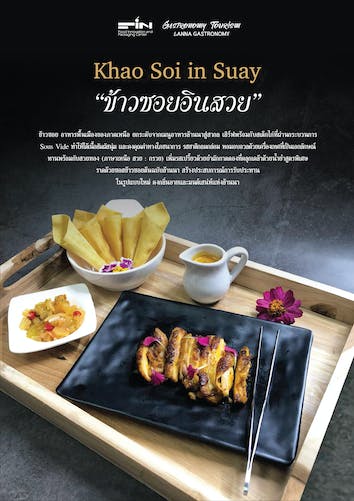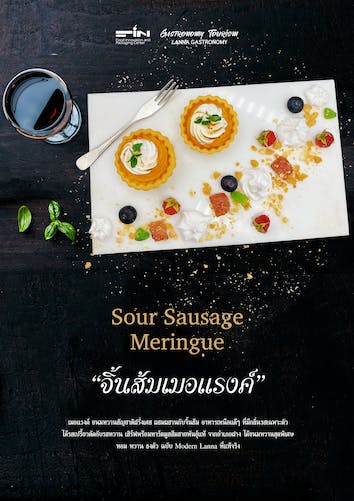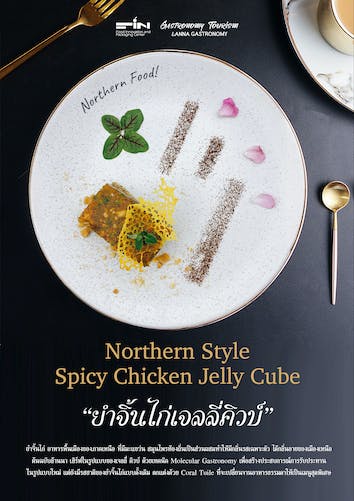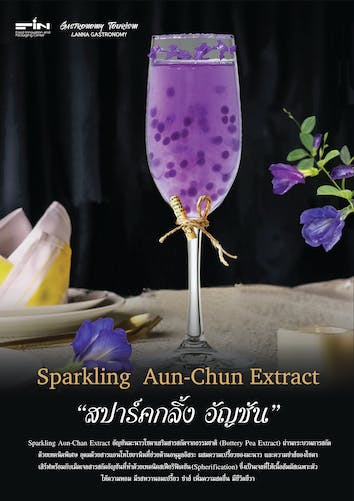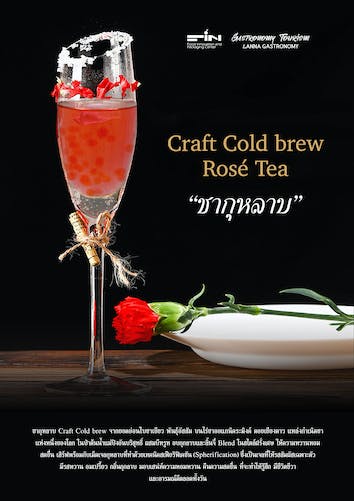Dreaming of tourists to come, Chiang Mai University’s Food Innovation and Packaging Centre (FIN) has created the Gastronomy Tourism: Lanna Gastronomy Project to position Chiang Mai as a future food tourism destination.
With a budget of 49 million baht, carved out of the government’s 400 billion baht economic and social restoration plan budget, FIN is laying the groundworks in anticipation of the skies and borders reopening.

Founded in 2014, FIN’s vision is to create a one stop service for national-level food support. “Often the private sector needs help, whether it is for research and development, finding government support, designing packaging or accessing markets,” said Associate Professor Yutana Phimolsiripol, Director of FIN. “Accessing academic expertise is often difficult as researchers and academics are busy and sometimes hard to pin down,” he continued. “Here at FIN, a company, an OTOP project or just someone with an idea related to food can come to us and ask for consultation. We could then either help them to develop a new item or assist them in realising their food dreams. We offer expertise, facilities, equipment and consultancy services.”
“We have created some very exciting dishes which our team is very proud of,” he added. “Some we were tasked with by business owners or chefs who came to us with an idea for us to work on, while others we have created ourselves. This is an inside out and outside in approach in that an SME can come to us for our knowhow while our own researchers, who often have the knowledge but no real-world application, can find channels to turn their knowledge into reality, even success.”

The Gastronomy Tourism: Lanna Gastronomy Project is an extension of FIN’s already Herculean task. To that end, it has created an atlas of Chiang Mai’s most popular and acclaimed restaurants, which it hopes will help draw visitors to Chiang Mai as well as keep them here longer as they explore our foodscape. The atlas will be regularly updated and will be widely promoted when tourism returns.
FIN’s innovative dishes use local produce, are faithful to local flavours, are familiar in their traditional forms to locals and many tourists and are expected to help elevate the foodscape of Chiang Mai, attracting more gastro-tourists in the future. All of these items and dishes were created through scientific research in conjunction with chefs, utilising local produce and developed with nutrition in mind. These are just some of the tasty new dishes created in the past year by FIN and which FIN hopes will attract tourists to come and try:
- Jin Kai Jelly Cube: inspired by the traditional Northern Style spicy chicken jelly ubiquitously found in markets across the north
- Jin Som Meringue: a name, or Northern sour sausage-turned-meringe
- Chiang Mai Khao Soy Icecream: we have tried it and it is surprisingly delicious
- Khao Soy in Suay: a novel and deconstructed way to taste khao soy
- Sparkling Aun-Chun Extract: bubbly anchan drink with burst-in-your-mouth anchun caviar
- Pop-in-your-mouth craft cold beer rose tea
“Today when tourists come to Chiang Mai, many go and find the best khao soy in town, with various restaurants vying for the title of the best,” explained the Assoc. Prof. “This is good for all businesses which sell khao soy. If we can create more of these new dishes, then potentially tourists will be drawn to the city to try them out, and this is good for everyone. And by everyone we also mean the farmers. Many of these dishes use local produce and farmers should be able to sell produce which is targeted and specific to demands, this will also add value to their produce. We at FIN will also be helping farmers to achieve this aim by supporting them with technology and knowhow as well as matching them with business who may become contract farming clients. This will help the farmers have stable streams of income as well as be able to control their pricing.” To that end FIN is working closely with the Faculty of Agriculture to focus on molecular agriculture, which promotes the faming of indigenous Lanna plants and local livestock aimed specifically at supporting these new and creative demands from the city’s chefs and restaurateurs.
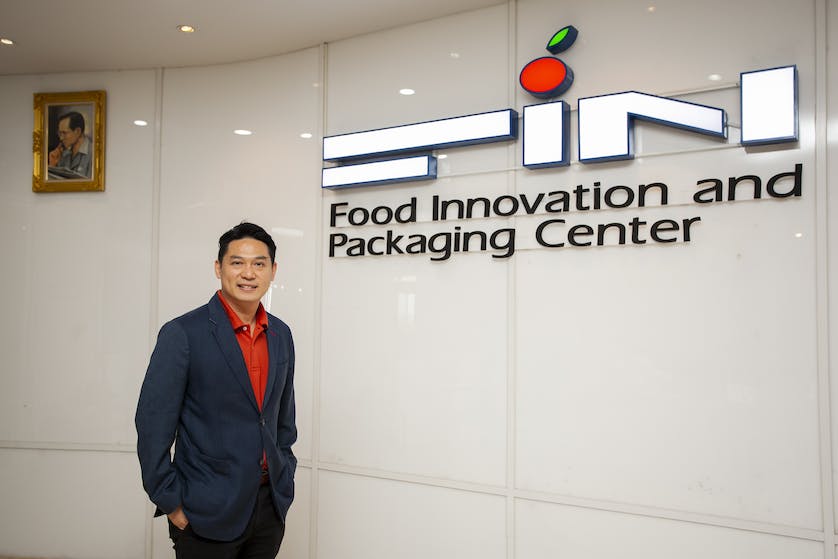
FIN’s purview is virtually limitless and Assoc. Prof. Yuthana is already planning to expand his 300 square metre office which currently houses 35 staff in the coming months. He says that his team can help a restaurant produce zero waste, match an entrepreneur’s idea to a scientist for research and development, assist farmers or SME owners to government funding, organise future food festivals, set hygiene standards for restaurants, pioneer new dishes…the possibilities are endless and with so much fresh produce coming into town from nearby mountains and valleys daily, Chiang Mai is primed to become a major player in the food world.
